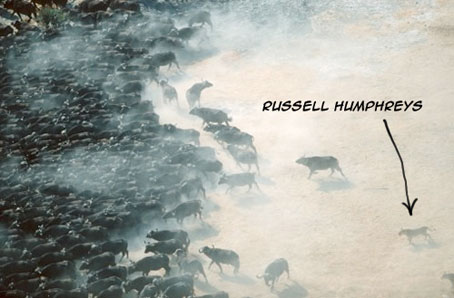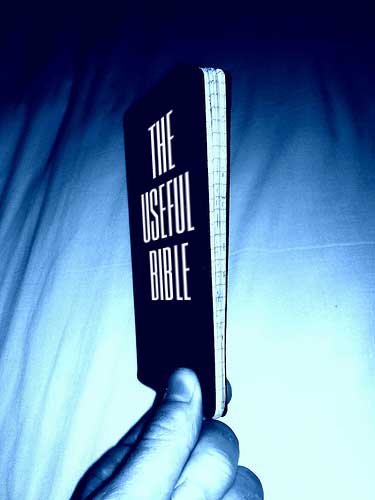Feb
13
2012
James Jordan is never afraid to throw a new idea on the table. As he says, “that’s my job.” But he’s also ever quick to remind his audience that what he has said is never the last word on a subject.
Brian Mattson writes:
Honest-to-goodness scholars are people who think, analyze, teach, and write in good faith.
Continue reading
Comments Off | tags: Compromise, Evolution, Theistic Evolution | posted in Christian Life, Creation, Ethics
Feb
3
2012
or The Invention of non-Adamites

“But your dad will not
know about that,”
Said the cat.
“He will never find out,”
Laughed the Cat in the Hat.
A popular argument among theistic evolutionists and hyperpreterists (and theistic evolutionary hyperpreterists) is that Adam wasn’t the first actual man, just the first man “in Covenant” with God. [1]
Continue reading
Comments Off | tags: Against Hyperpreterism, Compromise, Covenant curse, Covenant Theology, Genesis, Noah, Theistic Evolution | posted in Biblical Theology, Creation
Jun
26
2010

Daniel Harrell tries to marry chalk and cheese by positing that Adam and Eve were real people, just not the first real people. They were the first people with whom God entered into a Covenant relationship.[1] The Rev. Harrell is sitting on the fence, an extremely pointy fence.
For many Christians, the biblical characters Adam and Eve can present a significant challenge to accepting evolutionary theory—that is, when they are cast as historical figures who are also the biological progenitors of the human race. …the Rev. Daniel Harrell discusses how there may be some “middle ground” in the way that Christians understand Adam and Eve. Harrell points out that the historicity of Adam and Eve does not necessarily conflict with science. Rather, the claim that conflicts with science is the idea that Adam and Eve were the first humans, who were the only original biological ancestors of all humans today.
[This post has been refined and included in Sweet Counsel: Essays to Brighten the Eyes.]
Continue reading
Comments Off | tags: Adam, Cain, Compromise, Covenant Creationism, Herod, Seth, Theistic Evolution | posted in Biblical Theology, Creation
Apr
22
2010

“Human beings are animals whose preference for group membership is simultaneously the source of their greatest salvation and their ultimate destruction” —Xenocrates
Who has the majority of evidence to support their paradigm? Is it the Young Earth Creationists or the (mostly atheistic) Evolutionists? (Please note that as far as I am concerned, anyone else is just sitting on a very sharp fence trying to hide the pain with clever words.)
The Old Earthers, whatever their stripe (from Richard Dawkins and Christopher Hitchens to certain young Sydney Anglicans I admire and the misguided mob at BioLogos), despite their bluff, rely on hearsay and circular reasoning. Creationist cosmologist Russell Humphreys writes:
Continue reading
7 comments | tags: Christopher Hitchens, Evolution, John Dickson, Michael Jensen, Richard Dawkins, Russell Humphreys, Theistic Evolution | posted in Creation, Quotes
Jul
13
2009

or A Thimbleful of Watery Bible Broth
The Modernist Bible is very thin. The Old Testament is a mix of myth and history, and Revelation is just a general picture book of the gospel’s work in the world (or a polemic against first century Rome). It boils down basically to some key statements by Jesus and the letters of Paul. And even here, there are problems. Evangelicals love Paul because he communicates like a Greek, but even evangelicals choke on some things he says.
Continue reading
2 comments | tags: Compromise, Duane Garner, Gnosticism, Philosophy, Theistic Evolution, Tim Nichols | posted in Biblical Theology, Creation
Jun
14
2009
A brilliant thought (I think) from shotgun over at the AV forum:
I’m currently reading Gary North’s commentary on Genesis, “The Dominion Covenant.” It is probably one of the most enlightening books I’ve ever read, especially in terms of economics.
Anyway, I ran across some ideas that might serve to savage any and all attempts to intertwine the Genesis account with modern theories of evolution. (Gary North doesn’t apply these conclusions in this way. This speculation is all Shotgun.)
Gary North says this:
Under covenantal dominion, cursed nature’s restraints are progressively lifted. (Pg. 84)
He claims earlier that the “Earth was never designed to be autonomous.”
It seems to me that those who would posit long periods of time before man arose (as man) are implying that the Earth (and nature without man) has some sort of autonomous purpose apart from man. Implicit then, in systems like those of Hugh Ross, is the assumption of an autonomous sphere of sovereignty allocated to nature.
This cannot be true since there is no neutrality. In seeking to critique theistic evolutionary models, then, we should be on the lookout for any implications of an autonomous wilderness.
6 comments | tags: Compromise, Dominion Theology, Economics, Gary North, Hugh Ross, Theistic Evolution | posted in Biblical Theology, Creation





























